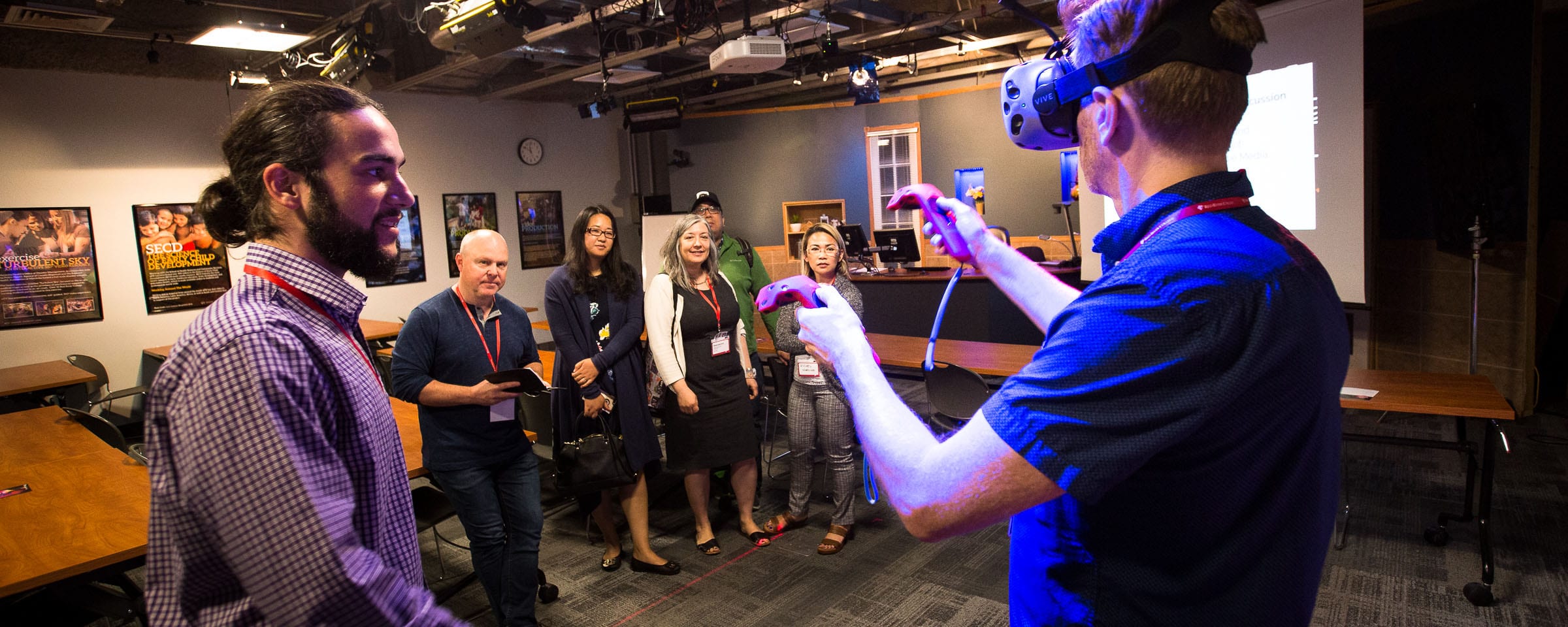MathType: Convert MS Word Equations to LEARN Code
The TLTC frequently assesses new software. We post parts of our internal reviews on our blog, but we do not necessarily endorse the technologies presented here. Please use this post for information only.
Attention, users of Microsoft Word’s Equation Tools! MathType is conversion software which can quickly convert math equations made in older versions of Word to a LEARN-friendly format.
As an instructor, you may wish to convert math exercises created in Microsoft Word to an online format using LEARN, where answers can be automatically graded and students can receive instant feedback. LEARN is able to display properly typeset math equations, so instead of students seeing an equation displayed inline as “2 7/16 + 3 1/2 + 5 5/8 + 10 3/4 =”, they can be shown as:
Far more complex equations are also supported.
However, if your document was created with Word 2003 or older, the process of transferring the equations into LEARN can be tedious. Due to an incompatibility between LEARN and older versions of Word’s math tool, known as Equation Editor 3.0, equations cannot be simply pasted into LEARN as they can from newer versions of the program. Enter MathType’s math utilities to help “translate” older equations into LEARN’s MathML or LaTeX coding protocols.
Using MathType
Converting a Word document to either MathML or LaTeX protocol is as easy as clicking a button on the MathType toolbar.
To start, download a 30-day trial or purchase a copy of MathType from http://www.dessci.com/en/products/mathtype/. Installing MathType adds a new MathType tab to Word’s ribbon.
Converting Word Equations:
- Click “Convert Equations” on the MathType tab to open an options window. Choose to convert equations to “Text using MathType translator:”. On the drop-down list, choose “Desire2Learn:LaTeX” or “Desire2Learn:MathML” as shown below.
- MathType automatically converts the equations to code which can then be pasted into LEARN. The converted file will be in the native .DOC file format. IMPORTANT: Use Save As to create a new copy of the file; otherwise, your original file will be lost when you hit Save.
- The code that is generated can be daunting at first glance, but individual questions can be easily made out as the original numbering is maintained in the document. For example, the code shown below is for question b. Copy the code for an individual question and you are ready for the next step, pasting into LEARN.
Pasting Into LEARN:
Pasting the code generated by MathType into LEARN is much faster than typing equations manually. Simply copy the code for an individual question from the Word document and paste it into your LEARN quiz.
- First, add a new quiz question to your LEARN quiz; either multiple choice or fill in the blank works the best for math. This will take you to the question editing screen.
- Your equation will go in the “Text:” box on the editing screen, but don’t paste your code just yet. To insert your code, click the “Show All Components” button (…) to see a larger list of buttons.

- Click “Graphical Equation”, and then either “MathML equation” or “LaTeX equation”, depending on which language you converted your Word document to. The “Insert Equation” box opens up.
- For LaTeX code, simply paste it into the LaTeX equation box.
For MathML, paste your code between the angle brackets as shown below.
 Click “Generate a preview” at the bottom of the window to see what your code will look like; if it isn’t displayed correctly, try deleting some of the characters at the beginning or end of your code such as brackets or slashes until just the equation remains in the preview.
Click “Generate a preview” at the bottom of the window to see what your code will look like; if it isn’t displayed correctly, try deleting some of the characters at the beginning or end of your code such as brackets or slashes until just the equation remains in the preview. - Press “Insert” to add your equation to the question, and you’re done! Add your answers, save your question, and repeat these steps as necessary.



